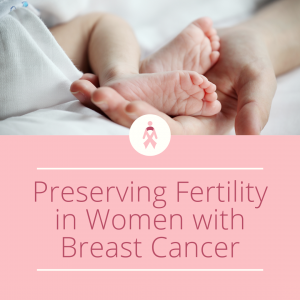Breast Cancer Fertility Preservation

From Dr. Vinay Gunnala
Dr. Vinay Gunnala from Southwest Fertility Center in Phoenix believes breast cancer awareness should be year-round, especially when it comes to the awareness of fertility preservation.
Dr. Gunnala notes, “For those who have just been given a devastating diagnosis of breast cancer, it is important to work swiftly with a Reproductive Medicine Physician to preserve fertility before cancer treatment, if having children in the future is desired.”
Important Points to Know
Important points to know when considering fertility preservation prior to gonadotoxic therapy:
-All cancer treatments will decrease a women’s fertility, from decreasing ovarian reserve to complete eradication of a woman’s eggs, resulting in premature menopause.
-Data has shown there is no difference in response to stimulation or egg quality with random start IVF. Meaning the whole process takes no more than 2 wks.
-Continuous letrozole can keep estrogen levels low to minimize the risk of a blood clot and potential for stimulation of breast cancer cells.
-There is no difference in short or long term response to chemo or risks of recurrence in women who underwent IVF with fertility preservation prior to cancer therapy.
-Most importantly, freezing eggs or embryos enables an individual to keep options open AFTER cancer treatment.
Family Planning Stages
For people in the family planning stages with a family history of hereditary cancers such as BRCA, IVF with PGT-M can be used to select embryos that are not affected by the mutation.
Whether you are battling breast cancer, a breast cancer survivor, or have lost a loved one to breast cancer, there are resources to help you navigate the family planning process so that you can focus on your medical and emotional needs.
Livestrong Foundation
The @livestrong foundation provides financial aide for individuals navigating this process. In 2014, they helped cancer survivors save a staggering 4.2 million dollars on fertility treatments and helped 940 people access vital sperm, egg and embryo preservation.
